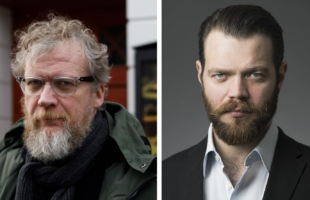Unaware to most ‘diehard’ sports fan, sports rights agencies are at the heart and soul of the sports sector and work with the entire world’s top rights bodies to acquire content for distribution services, and work with them to support their clients’ subscription platform aspirations.
There’s more, most agencies such as the world’s leading TV rights company worldwide, MP & Silva provide full suite of support to clubs and broadcasters.
MP & Silva acquired the right to Sports Rights Properties represent the United States’ most watched sports league, the National Football League, (NFL) for 42 territories across Europe. Under the agreement, MP & Silva will be the NFL’s agent to distribute television and select digital rights for the 2015 through 2019 NFLseasons, helping expand the NFL’s growing fan base in Europe and developing a new generation of American football fans globally.
With the strongest portfolio of football media rights globally, MP & Silva continues to build on its successful distribution of the German Bundesliga in Japan for the 2015/2016 to the 2017/2018 season, having acquired the exclusive media rights from FOX International Channels (FIC), 21st Century FOX’s multi-media business and Asia’s leading pay-TV network under a comprehensive sublicensing deal approved by Bundesliga’s commercial subsidiary DFLSports Enterprises. MP & Silva will be the exclusive distributor of Bundesliga rights in Japan across all platforms, including cable, satellite, terrestrial, Web TV, IPTV and mobile.
Still in Japan, MP & Silva secured a deal for the exclusive rights to distribute the prestigious UEFA Euro 2016™ in Japan for the first time, continuing its winning streak of clinching top-flight football content in the market. The rights include television across cable, satellite and terrestrial, internet TV, IPTV and mobile.
Most recently, Eurosport announced that it has secured exclusive media rights for the UEFA Champions League in Singapore. This agreement with UEFA – the governing body of football in Europe – runs for three years from the 2015/2016 season. Eurosport will broadcast one live match every Tuesday and Wednesday for the entire season.
A highlight show will follow each live match and all additional matches will be made available to viewers online through OTT.
Ten Sports Network also secured exclusive rights for MotoGP™, the premier world championship for motorcycle road racing. MotoGP will, for the first time, be broadcast exclusively by a broadcaster in the Indian Sub-Continent. This new deal between Taj TV and MotoGP™ rights holders Dorna Sports will run for a period of five seasons starting 2015. As a part of this deal, Ten Sports will broadcast all MotoGP, Moto2™ & Moto3™ races and Qualifying practices LIVE on their network of Six channels. Ten Sports will also be offering multi-screen feeds on its digital platforms and will develop a dedicated MotoGP section on www.tensports.com.
Commenting from a legal prospective, sports legal advisor, Olswang’s Matthew Pollins, Digital Media lawyer said, “Live sports rights entitle the rights holder to broadcast live coverage of a particular sporting event. Sports rights are generally controlled by the governing body that runs the relevant sporting event. For example, in relation to the Olympics, the International Olympic Committee controls the worldwide broadcast rights. The rights are usually controlled through a combination of physical and legal controls – over the sporting venue, the rules and regulations of the sport and the contractual agreements between the different players in the ecosystem.” Olswang group has acted on some of the biggest sports deals over the years and advised some of the most prominent names in international sport.
Bringing the very best in sports to Asia in spite of regulatory and rights complications is FOX Sports. Craig Dobbs, Head, Programming & Acquisitions for Asia and Middle East said, “The major difference for Asia is only in Singapore, with the non-exclusive content requirement and with all other markets, we work closely with regulatory bodies to be in line with their requirements.
As with all regulations, they may change in future, and we’ll continue to monitor them. And at FOX Sports, we are able to call upon our expertise in offering the very best sports viewing experience to fans and our tremendous reach in Asia, and we believe these are important factors which rights holders consider when broadcast rights are awarded to us, which then allows us to continue bringing in the best in sports to Asia.”
Andrea Radrizzani is one of the main shareholders and co-founded of MP & Silva together with Riccardo Silva in 2004. Radrizzani is an experienced sports rights specialist who was personally involved in most of MP & Silva’s rights acquisition with the major rights holders such as English Premier League, FIFA World Cup, UEFA, Ligue 1, Bundesliga, Formula One, Olympic Council of Asia and others. The firm has an annual turnover of USD 650 million and an exemplary track record in distributing TV and media rights for sports federations.
Radrizzani claims the constitutional rights agency is supreme over who gets to buy from a territory. “Rights are usually sold at certain rates together with full spectrum of support such as customisation, digitisation, commentary, translation, cinematic special effects, HD/4K quality, together with other technical supports. We will strongly access the buyer from various perspective and experience in a territory and fulfill our obligation.
“Rights don’t come cheap but with a spectrum of relating supports. Some recent exclusive deals we concluded are: Premier League for 7 territories at USD 500 million for 3 years. Italian Serie for 3 years at 190 – 200 million Euro per year. And, the French Open for distribution in only Europe, at 23 million Euro per year,” he added.
Matthew agreed. “There is a clear monetary value attached to sports rights and the licensing of sports rights is a multi-billion dollar industry.
In the UK, for example, the most recent Premier League rights auction (for UK broadcast rights only) was worth a record USD 7.5 billion. The surging global value of sports rights shows no signs of abating. The driving force is TV and broadband subscriptions. Viewers love live sports – and platforms know that if they hold exclusive sports rights, more viewers will subscribe to their platform, which means more subscription revenues.”
Dobbs also feels there is no denying that price is definitely a factor. A few rights holders may look at maximising their returns from broadcast rights and award bids based largely on monetary returns, while other rights holders will have a more long-term, holistic approach, and look for a broadcaster who is able to help them build their property in Asia.
He added, “More and more nontraditional sports players are getting into the game, either to use Sports as a ‘battering ram’, or to complement what they already offer without diluting their core service/content. And of course, there is the OTT. It remains to be seen how this pans out but the landscape is certainly changing.”
Pollins said, “At one level, live sports rights are very simple – they allow the holder of the rights to broadcast live coverage of the event in question.
As a general rule, if you haven’t been given the rights to broadcast the event by the governing body of the event or their agent then you do not have the legal right to broadcast that event. However, sports rights have become incredibly complex.
“First, there are lots of parties involved. You have the players, the clubs and the governing bodies; then you have the media rights agencies, who broker deals between the rights owners and the broadcasters around the world; you have the companies who film and produce the content; you have broadcasters themselves; and, finally, you have the fans who want to watch the sports.
“Second, there are many different categories of rights – there are live TV rights, highlights packages, satellite broadcast rights, online broadcast rights, pay-per-view rights and many more. As new platforms emerge, so do new categories of rights. And all of these rights are divided up by country – so you might have a video platform in Vietnam with online streaming rights and another video platform with satellite broadcasting rights.
“And finally, you have the laws and regulations. Some countries, for example, don’t permit exclusive deals, in an attempt to ensure there are no effective “monopolies” over sports rights. Other countries mandate that certain categories of very high-profile events (the World Cup Final, for example), are broadcast on free-to-air, as opposed to pay TV, channels, to make sure that the vast majority of the population is able to watch,” he added.
Pollins feels the biggest challenge facing the global sports rights industry in Asia is piracy – in particular, live streaming and clips websites that show live coverage and/or highlights without paying for the rights. This sucks money out of sports and, ultimately, limits investment at a grass roots level.
There is growing pressure from the industry for governments in Asia to more effectively enforce intellectual property rights against the pirate websites that pay nothing for the content and, in many cases, fund their operations through illicit advertising. In Singapore, for example, the site-blocking rules that came into effect last year will allow the rights holders to make sure that pirate websites are blocked.
Unaware to most ‘diehard’ sports fan, sports rights agencies are at the heart and soul of the sports sector and work with the entire world’s top rights bodies to acquire content for distribution services, and work with them to support their clients’ subscription platform aspirations.
There’s more, most agencies such as the world’s leading TV rights company worldwide, MP & Silva provide full suite of support to clubs and broadcasters.
MP & Silva acquired the right to Sports Rights Properties represent the United States’ most watched sports league, the National Football League, (NFL) for 42 territories across Europe. Under the agreement, MP & Silva will be the NFL’s agent to distribute television and select digital rights for the 2015 through 2019 NFLseasons, helping expand the NFL’s growing fan base in Europe and developing a new generation of American football fans globally.
With the strongest portfolio of football media rights globally, MP & Silva continues to build on its successful distribution of the German Bundesliga in Japan for the 2015/2016 to the 2017/2018 season, having acquired the exclusive media rights from FOX International Channels (FIC), 21st Century FOX’s multi-media business and Asia’s leading pay-TV network under a comprehensive sublicensing deal approved by Bundesliga’s commercial subsidiary DFLSports Enterprises. MP & Silva will be the exclusive distributor of Bundesliga rights in Japan across all platforms, including cable, satellite, terrestrial, Web TV, IPTV and mobile.
Still in Japan, MP & Silva secured a deal for the exclusive rights to distribute the prestigious UEFA Euro 2016™ in Japan for the first time, continuing its winning streak of clinching top-flight football content in the market. The rights include television across cable, satellite and terrestrial, internet TV, IPTV and mobile.
Most recently, Eurosport announced that it has secured exclusive media rights for the UEFA Champions League in Singapore. This agreement with UEFA – the governing body of football in Europe – runs for three years from the 2015/2016 season. Eurosport will broadcast one live match every Tuesday and Wednesday for the entire season.
A highlight show will follow each live match and all additional matches will be made available to viewers online through OTT.
Ten Sports Network also secured exclusive rights for MotoGP™, the premier world championship for motorcycle road racing. MotoGP will, for the first time, be broadcast exclusively by a broadcaster in the Indian Sub-Continent. This new deal between Taj TV and MotoGP™ rights holders Dorna Sports will run for a period of five seasons starting 2015. As a part of this deal, Ten Sports will broadcast all MotoGP, Moto2™ & Moto3™ races and Qualifying practices LIVE on their network of Six channels. Ten Sports will also be offering multi-screen feeds on its digital platforms and will develop a dedicated MotoGP section on www.tensports.com.
Commenting from a legal prospective, sports legal advisor, Olswang’s Matthew Pollins, Digital Media lawyer said, “Live sports rights entitle the rights holder to broadcast live coverage of a particular sporting event. Sports rights are generally controlled by the governing body that runs the relevant sporting event. For example, in relation to the Olympics, the International Olympic Committee controls the worldwide broadcast rights. The rights are usually controlled through a combination of physical and legal controls – over the sporting venue, the rules and regulations of the sport and the contractual agreements between the different players in the ecosystem.” Olswang group has acted on some of the biggest sports deals over the years and advised some of the most prominent names in international sport.
Bringing the very best in sports to Asia in spite of regulatory and rights complications is FOX Sports. Craig Dobbs, Head, Programming & Acquisitions for Asia and Middle East said, “The major difference for Asia is only in Singapore, with the non-exclusive content requirement and with all other markets, we work closely with regulatory bodies to be in line with their requirements.
As with all regulations, they may change in future, and we’ll continue to monitor them. And at FOX Sports, we are able to call upon our expertise in offering the very best sports viewing experience to fans and our tremendous reach in Asia, and we believe these are important factors which rights holders consider when broadcast rights are awarded to us, which then allows us to continue bringing in the best in sports to Asia.”
Andrea Radrizzani is one of the main shareholders and co-founded of MP & Silva together with Riccardo Silva in 2004. Radrizzani is an experienced sports rights specialist who was personally involved in most of MP & Silva’s rights acquisition with the major rights holders such as English Premier League, FIFA World Cup, UEFA, Ligue 1, Bundesliga, Formula One, Olympic Council of Asia and others. The firm has an annual turnover of USD 650 million and an exemplary track record in distributing TV and media rights for sports federations.
Radrizzani claims the constitutional rights agency is supreme over who gets to buy from a territory. “Rights are usually sold at certain rates together with full spectrum of support such as customisation, digitisation, commentary, translation, cinematic special effects, HD/4K quality, together with other technical supports. We will strongly access the buyer from various perspective and experience in a territory and fulfill our obligation.
“Rights don’t come cheap but with a spectrum of relating supports. Some recent exclusive deals we concluded are: Premier League for 7 territories at USD 500 million for 3 years. Italian Serie for 3 years at 190 – 200 million Euro per year. And, the French Open for distribution in only Europe, at 23 million Euro per year,” he added.
Matthew agreed. “There is a clear monetary value attached to sports rights and the licensing of sports rights is a multi-billion dollar industry.
In the UK, for example, the most recent Premier League rights auction (for UK broadcast rights only) was worth a record USD 7.5 billion. The surging global value of sports rights shows no signs of abating. The driving force is TV and broadband subscriptions. Viewers love live sports – and platforms know that if they hold exclusive sports rights, more viewers will subscribe to their platform, which means more subscription revenues.”
Dobbs also feels there is no denying that price is definitely a factor. A few rights holders may look at maximising their returns from broadcast rights and award bids based largely on monetary returns, while other rights holders will have a more long-term, holistic approach, and look for a broadcaster who is able to help them build their property in Asia.
He added, “More and more nontraditional sports players are getting into the game, either to use Sports as a ‘battering ram’, or to complement what they already offer without diluting their core service/content. And of course, there is the OTT. It remains to be seen how this pans out but the landscape is certainly changing.”
Pollins said, “At one level, live sports rights are very simple – they allow the holder of the rights to broadcast live coverage of the event in question.
As a general rule, if you haven’t been given the rights to broadcast the event by the governing body of the event or their agent then you do not have the legal right to broadcast that event. However, sports rights have become incredibly complex.
“First, there are lots of parties involved. You have the players, the clubs and the governing bodies; then you have the media rights agencies, who broker deals between the rights owners and the broadcasters around the world; you have the companies who film and produce the content; you have broadcasters themselves; and, finally, you have the fans who want to watch the sports.
“Second, there are many different categories of rights – there are live TV rights, highlights packages, satellite broadcast rights, online broadcast rights, pay-per-view rights and many more. As new platforms emerge, so do new categories of rights. And all of these rights are divided up by country – so you might have a video platform in Vietnam with online streaming rights and another video platform with satellite broadcasting rights.
“And finally, you have the laws and regulations. Some countries, for example, don’t permit exclusive deals, in an attempt to ensure there are no effective “monopolies” over sports rights. Other countries mandate that certain categories of very high-profile events (the World Cup Final, for example), are broadcast on free-to-air, as opposed to pay TV, channels, to make sure that the vast majority of the population is able to watch,” he added.
Pollins feels the biggest challenge facing the global sports rights industry in Asia is piracy – in particular, live streaming and clips websites that show live coverage and/or highlights without paying for the rights. This sucks money out of sports and, ultimately, limits investment at a grass roots level.
There is growing pressure from the industry for governments in Asia to more effectively enforce intellectual property rights against the pirate websites that pay nothing for the content and, in many cases, fund their operations through illicit advertising. In Singapore, for example, the site-blocking rules that came into effect last year will allow the rights holders to make sure that pirate websites are blocked.







